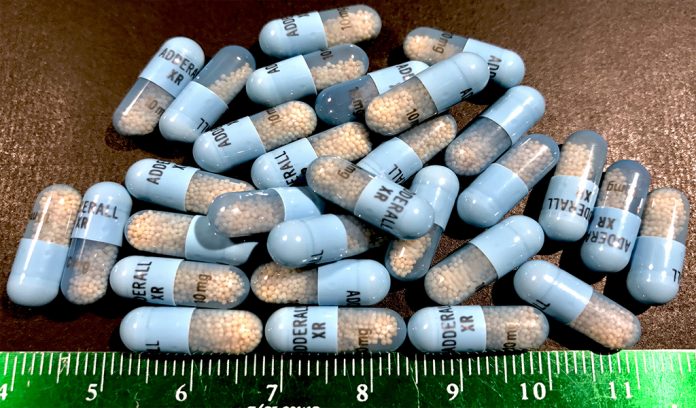
Big Pharma is at it again! In a TV appearance at the MSNBC program “All In with Chris Hayes”, drug abuse and addiction expert Carl Hart of Columbia University asserted that there isn’t much difference between the street drug methamphetamine (popularly known as meth or crystal meth) and the prescription drug Adderall. This idea has wide-ranging implications for those taking Adderall as a prescription drug, particularly children as young as two years old with Attention Deficit Hyperactivity Disorder (ADHD).
This concept is not something new. In a 2014 report, Hart and Columbia co-authors Don Habibi and Joanne Csete studied in-depth the effects of meth on the brain – and concluded that there is no perceptible difference in the effects of any type of amphetamine, whether prescription or banned, on the brain.
Some Basic Facts about Amphetamines
Amphetamines are a class of chemicals used medically and recreationally. It is a class of drugs known as “stimulants” and popularly used to treat narcolepsy and ADHD. The street drug known as “meth” is referred to as either dextroamphetamine or methamphetamine. It is also known as “crystal meth” with the scientific name of methamphetamine hydrochloride. The study’s authors report, upon analyzing current scientific literature, that meth tends to be much stronger and “addictive” than other amphetamines.
FDA clears Meth for ADHD, Weight Loss
In controlled studies with human participants, the study’s scientists concluded that dextroamphetamine and methamphetamine produce nearly identical behavioral and physiological effects. Both drugs “increase the pulse and blood pressure, induce euphoria and the inclination to take the drug in a dependent manner”. They concluded that both drugs are identical.
The problem here is that amphetamine drugs such as Adderall which are prescribed to treat narcolepsy and ADHD especially among children, are in fact not any different from the street drug meth. Since 25% of the components of Adderall are amphetamines and the balance of 75% are dextroamphetamine salts, technically we are giving a euphoric high to kids.
Kids can learn to be dependent on Adderall a.k.a. meth because this drug was also proven to enhance mental and athletic performance, and produces a euphoric “high” if used recreationally.
And the biggest shocker of them all is the U.S. Food and Drug Administration (FDA) approved it for commercial marketing.
In fact, another FDA-approved drug, Desoxyn, is a methamphetamine hydrochloride which technically is “crystal meth”. Desoxyn is marketed for the treatment of ADHD (allowed if you do not have any nervous system dysfunction) and also as a weight-loss drug.
Training our Kids to be Drug-Dependent
So now with FDA-approved drugs in the market that are being used to treat serious diseases like ADHD, we may face the scenario of kids being dependent on them. Long-term use of amphetamine, according to Hart and his colleagues, leads to toxicity in brain cells that produce monoamine and dopamine neurotransmitters. Higher levels of dopamine in the brain may lead to the production of cell- and DNA-destroying free radicals.
Our children are at risk with this medical scenario.
What do you think of this situation? Should we be blaming the U.S. FDA for encouraging our kids to become drug dependent? Share your thoughts in the comments section below.
Image by wikimediacommons / GNU FDL








